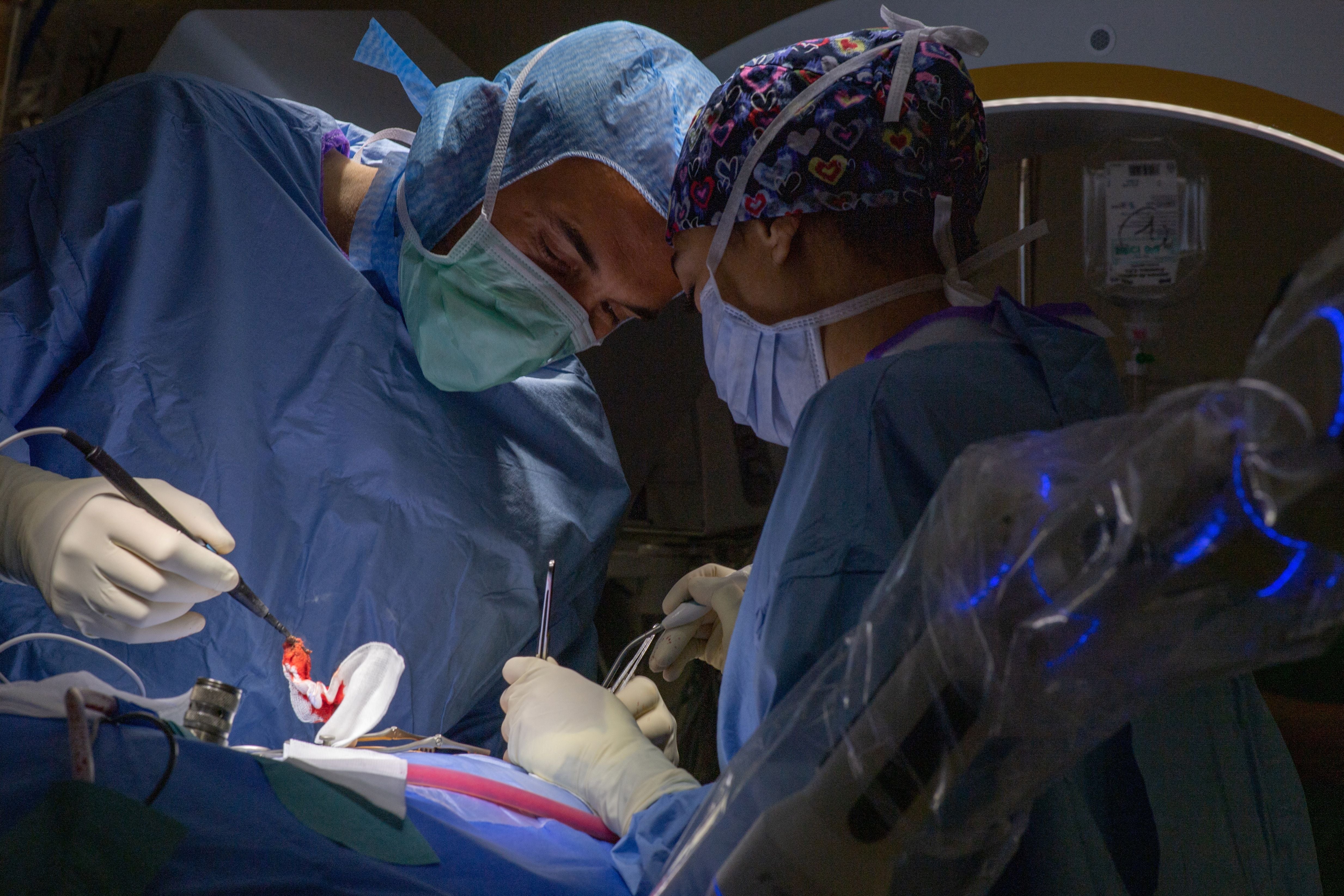Researchers successfully preserve human liver for three days outside of the body using machine
The breakthrough could increase the number of livers available for patients

A damaged human liver has been repaired and preserved in a machine for three days before being successfully transplanted into a patient, researchers say, in what is the first operation of its kind.
It’s hoped the breakthrough development could increase the number of livers available for patients in need of a transplant, allow surgery to be scheduled days in advance and ultimately save lives.
The man who underwent the surgery in May 2021 quickly recovered and did not reject his new liver. He remains healthy one year on.
“I am very grateful for the life-saving organ,” said the man, a cancer patient who had been on a Swiss transplant list.
“Due to my rapidly progressing tumour, I had little chance of getting a liver from the waiting list within a reasonable period of time.”
There is an increasing gap between the demand for liver transplants and the small number of available organs. In the UK, an adult waits an average of 65 days to receive a new liver.
However, as clinical practice is to store donor livers for no more than about 12 hours on ice before transplantation, the number of organs that can be matched to transplant recipients is limited.
Pierre-Alain Clavien, director of the Department of Visceral Surgery and Transplantation at the University Hospital Zurich, and colleagues demonstrated the preservation of a human liver for three days outside of the body using a machine that performs a technique known as ex situ normothermic perfusion.
This is when the organ is supplied with a blood substitute at normal body temperature while outside the body. The machine mimics the human body as accurately as possible to provide ideal conditions for human livers.
According to the study, published in the Nature Biotechnology journal, the team prepared the liver in the machine with various drugs, making it suitable for transplant even though it was originally not approved for the procedure.
The liver was transplanted into the patient, who was suffering from several serious liver conditions, including end-stage liver disease and liver cancer.
The Liver4Life team found that the transplanted organ functioned normally, with minimal injury, as blood flow from internal blood vessels returned. Basic immunosuppressants were only given during the first six weeks after the surgery.
Among other things, connecting the liver to the machine allows it to be treated with antibiotic or hormonal therapies and lengthy laboratory or tissue tests can be carried out without time pressure.
Under normal circumstances, this is not possible because organs can only be stored for 12 hours if they are stored conventionally on ice and in commercially available perfusion machines.
Prof Clavien said: “Our therapy shows that by treating livers in the perfusion machine, it is possible to alleviate the lack of functioning human organs and save lives.”
Mark Tibbitt, professor of macromolecular engineering at ETH Zurich, added: “The interdisciplinary approach to solving complex biomedical challenges embodied in this project is the future of medicine.
“This will allow us to use new findings even more quickly for treating patients.”
Subscribe to Independent Premium to bookmark this article
Want to bookmark your favourite articles and stories to read or reference later? Start your Independent Premium subscription today.

Join our commenting forum
Join thought-provoking conversations, follow other Independent readers and see their replies